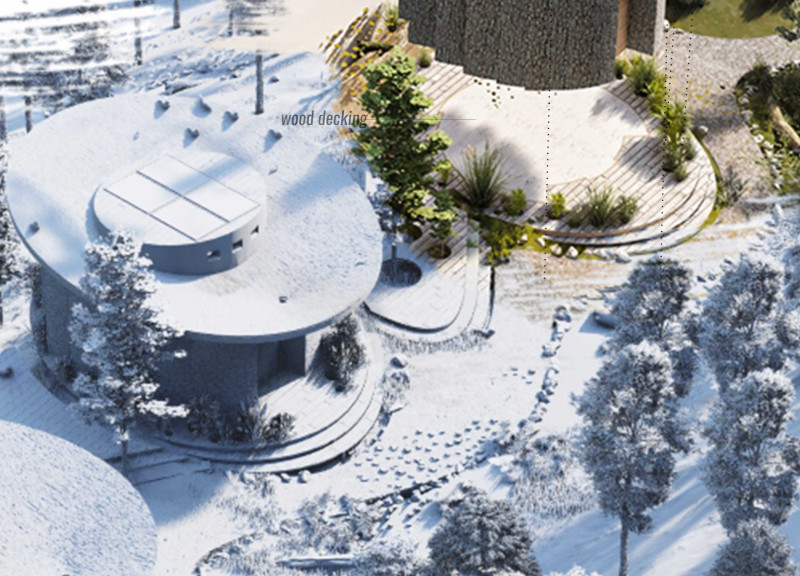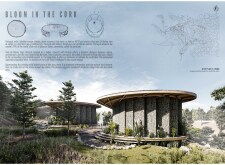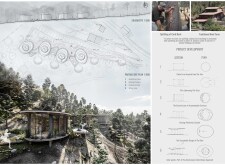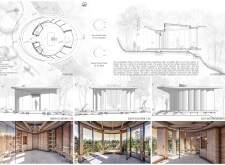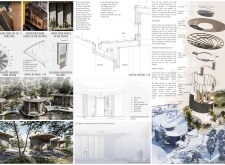5 key facts about this project
Bloom in the Cork is located in Portugal within the Vale de Moses Yoga Retreat. The setting supports a Mediterranean climate with rich biodiversity. The design emphasizes a strong connection between the natural environment and the built structure. It serves as a space for meditation, solitude, and interaction with nature while drawing inspiration from the nearby cork trees found in the landscape.
Dynamic Facade
The cabin includes a dynamic facade that responds to the changing weather. This feature improves energy efficiency and overall comfort. Motor-driven mechanisms operated by solar energy allow the facade to adapt, reducing the need for traditional heating and cooling methods. This thoughtful design element enhances the building's functionality throughout different weather conditions.
Sustainable Practices
Sustainability is a central focus. Solar panels on the gently sloped roof provide hot water and support rainwater collection. The system allows for conservation, with collected water available for non-drinking purposes, such as watering gardens. These practices illustrate a commitment to reducing environmental impact and using resources responsibly.
Interior Design
Inside, the cabin showcases a minimalist design aimed at creating a calm atmosphere. The choice to limit accessories leads to open spaces that encourage meditation and reflection. Designated areas for foldable meditation mattresses and cushions offer flexibility, ensuring that the space can adapt to various needs while maintaining a sense of simplicity.
Natural Integration
Large windows frame views of the surrounding landscape, inviting the outdoors into the living areas. This connection enhances the user experience and connects inhabitants with the beauty of nature. The design values the relationship between indoor and outdoor spaces, allowing occupants to appreciate the changing scenery as they move through the cabin.


